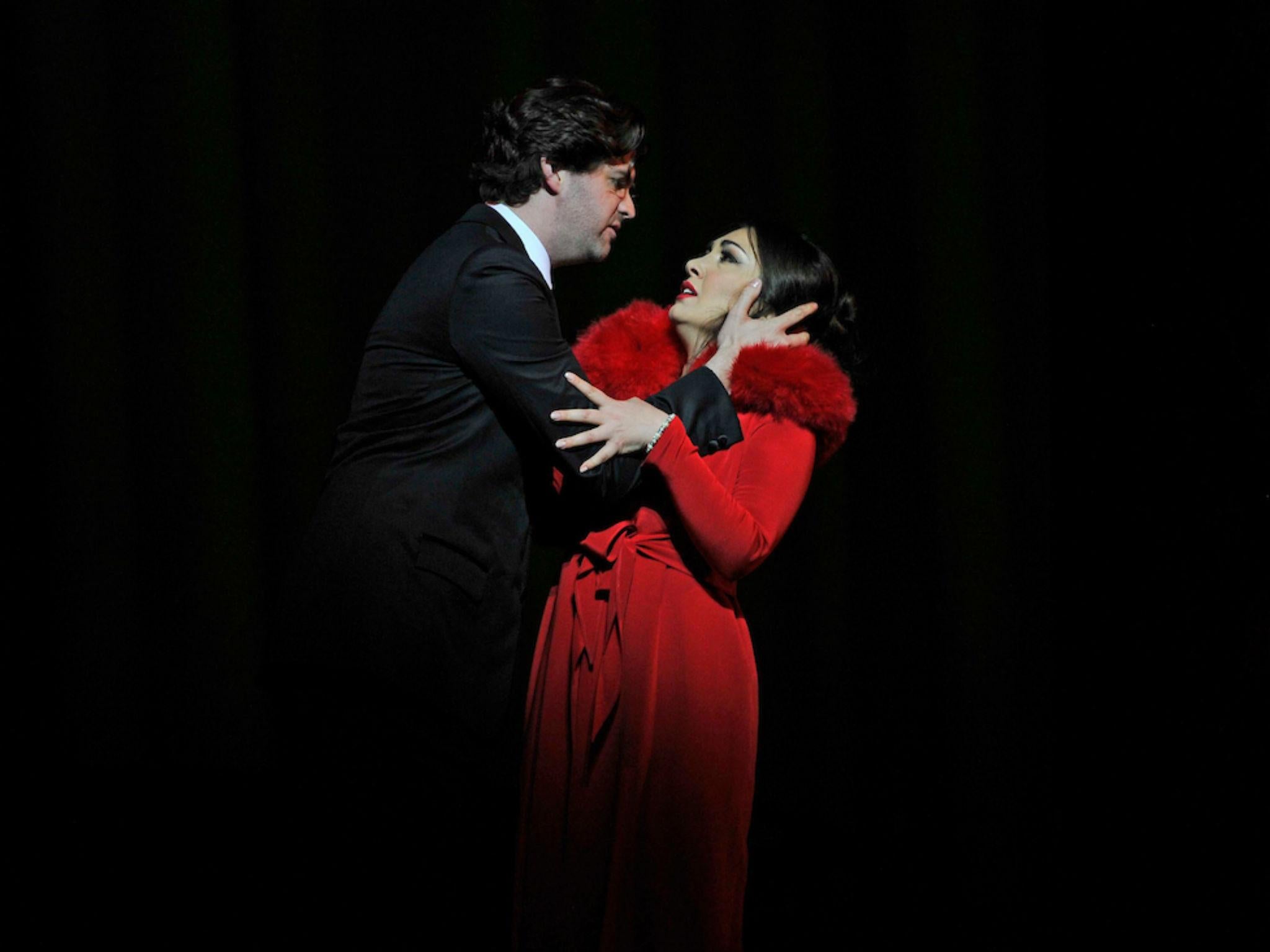Hipermestra/La traviata, Glyndebourne Festival Opera, review: The revival of Tom Cairns’s production of La traviata is outstanding
The Glyndebourne Festival Opera performs Cavalli's early Baraoque opera and Tom Cairn's revival of Verdi's heart-wrenching love story

The surtitle box says ‘mobiles off’ in Arabic, the proscenium is fringed with Islamic designs, and the orchestra are veiled and capped like players in the Middle East: every effort is made to give us a sense of place. The plot of Cavalli’s Hipermestra derives from antiquity, and this is its first production since its premiere in Florence in 1658: director Graham Vick and conductor William Christie have chosen it in the belief that the passion, heroism, and intrigue of its plot, and the beauty of its score, will appeal irresistibly to lovers of Baroque opera today.
One big production error may qualify that ‘irresistibly’. Cavalli’s style is wall-to-wall solo recitatives unleavened by choruses, and the first two acts run unbroken: the effort of concentration on a labyrinthine libretto for two solid hours makes one long for a brief respite. But this music, which inhabits the same sound-world as that of Cavalli’s mentor Monteverdi (if not on the same exalted plane), weaves a compelling sonic tapestry, particularly with a brilliant ensemble as here – ten singers and eight period instrumentalists with not a single weak link.
The fifty daughters of King Danao are engaged to the fifty sons of his brother Egitto. Terrified of an oracular prediction that one of those fiancés will murder him, he orders them all to be married then killed by their wives; Hipermestra, who loves her husband, refuses - thus is her seeming tragedy set in train. Stuart Nunn’s staging opens with a bling-filled mass marriage in what looks like a Gulf-state hotel, and the action – low comedy alternating with high drama – bowls agreeably along.
But the atmosphere darkens as it becomes clear that Vick wants us to think Syria. This is initially done crudely, as the stage is crammed to bursting with a real-life Merc, military truck, and petrol station. Then come touches of implied horror including a mock beheading, a hinted-at gang rape, and a pile of pebbles for a stoning; there is a strong feminist thread.
But the final act has transcendent authority. It begins with a solo violinist (the redoubtable Kati Debretzeni) playing a lovely solo amid the all-too-convincing ruins of a destroyed city, and it continues with a sequence of dramatic cameos in which singers and players combine and re-combine to resolve the story’s conflicts. One is left with some glorious memories, notably Raffaelle Pe’s haut-contre purity, Benjamin Hullett’s vibrant tenor, Renato Dolcini’s baritonal warmth, Ermoke Barath’s soprano steel, Ana Quintans’s soprano sweetness, and the hilarious lord-of-misrule antics of Mark Wilde’s Berenice, here a dead ringer for Baba the Turk.
The revival of Tom Cairns’s production of La traviata with Kristina Mkhitaryan as Violetta is outstanding. The restrained naturalism of Cairns’s direction allows this Russian soprano’s performance to play off those of Zach Borichevksy’s boyish Alfredo and Igor Golovatenko’s graceful Germont père to profoundly moving effect. This Violetta has an ordinariness which melts the heart, and her delicately-inflected singing, abetted by Richard Farnes’s sensitive direction in the pit, is a delight.
Subscribe to Independent Premium to bookmark this article
Want to bookmark your favourite articles and stories to read or reference later? Start your Independent Premium subscription today.

Join our commenting forum
Join thought-provoking conversations, follow other Independent readers and see their replies